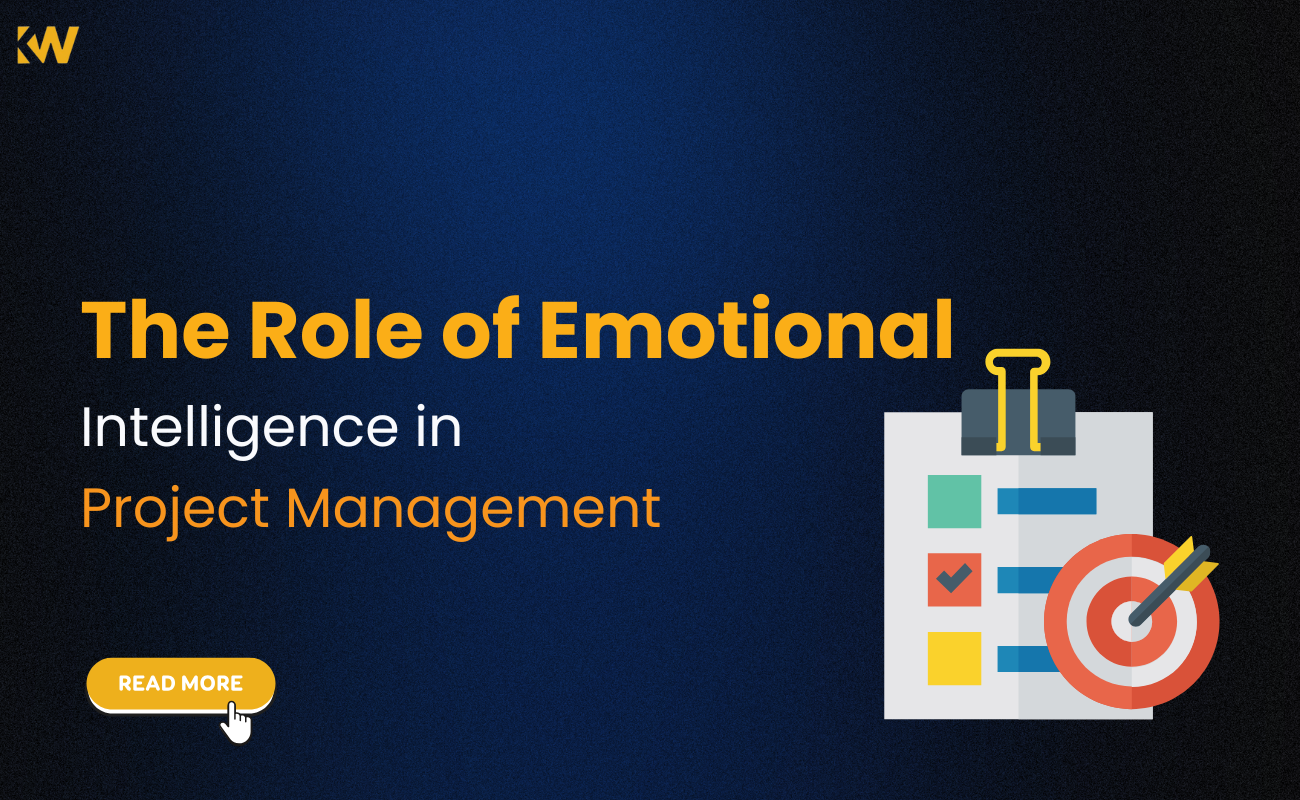
The Role of Emotional Intelligence in Project Management
Posted On December 6, 2024 - 16:33 PM
Introduction: Emotional Intelligence in Modern Project Management
In the fast-paced, ever-evolving world of project management, technical expertise is essential—but it’s no longer enough. Success in 2024 hinges on emotional intelligence (EI), the ability to understand, manage, and leverage emotions effectively in a professional setting. Whether you're managing a global team or navigating stakeholder conflicts, emotional intelligence is the game-changer that fosters collaboration, resilience, and success.
What Is Emotional Intelligence (EI)?
Emotional intelligence refers to the ability to recognize, understand, and regulate one's own emotions and empathize with others. Psychologist Daniel Goleman popularized the concept, breaking it into five core components:
-
Self-Awareness – Understanding your emotions and their impact.
-
Self-Regulation – Managing emotions and impulses effectively.
-
Motivation – Staying focused and driven toward goals.
-
Empathy – Understanding and sharing the feelings of others.
-
Social Skills – Building and maintaining positive relationships.
In project management, these skills translate to better decision-making, improved communication, and stronger team dynamics.
The Importance of EI in Project Management
1. Enhancing Team Collaboration
Project managers often oversee diverse teams with varying skill sets and personalities. Emotional intelligence enables leaders to foster a culture of trust and open communication, encouraging team members to collaborate effectively.
2. Conflict Resolution
Conflicts are inevitable in projects. Emotionally intelligent managers can identify the root causes of disagreements, mediate effectively, and ensure that conflicts lead to constructive solutions rather than derailments.
3. Improving Stakeholder Relationships
Understanding and managing stakeholders' emotions is key to gaining their trust and buy-in. Emotional intelligence helps project managers navigate difficult conversations and ensure stakeholders remain engaged.
4. Boosting Decision-Making
Emotions can cloud judgment, but emotionally intelligent managers are self-aware enough to separate their feelings from facts, enabling objective decision-making even under pressure.
5. Fostering Resilience
Projects often face setbacks. EI helps managers maintain a positive outlook, motivate their teams, and adapt to challenges without losing focus on project goals.
How Emotional Intelligence Shapes Key Project Management Processes
1. Planning
Emotional intelligence helps project managers account for team dynamics and anticipate potential challenges, leading to realistic and inclusive plans.
2. Execution
During execution, EI ensures clear communication, fosters accountability, and minimizes misunderstandings, keeping the project on track.
3. Monitoring and Controlling
Emotionally intelligent managers excel at giving feedback, maintaining team morale, and resolving issues promptly.
4. Closing
At the project's end, EI helps ensure that lessons learned are shared constructively and that all stakeholders feel acknowledged and valued.
Tips for Developing Emotional Intelligence as a Project Manager
1. Practice Self-Awareness
-
Regularly reflect on your emotional triggers.
-
Seek feedback from peers and team members to identify blind spots.
2. Improve Empathy
-
Actively listen to team members without interrupting.
-
Ask open-ended questions to understand their perspectives.
3. Master Self-Regulation
-
Take a moment to pause and reflect before reacting emotionally.
-
Use stress-management techniques like mindfulness or journaling.
4. Develop Strong Social Skills
-
Build rapport with your team through genuine conversations.
-
Use conflict as an opportunity to strengthen relationships rather than weaken them.
5. Stay Motivated
-
Celebrate small wins to maintain momentum.
-
Focus on the bigger picture to stay driven during tough phases.
The Future of EI in Project Management: Trends for 2024 and Beyond
-
AI and EI Integration
With AI tools becoming standard in project management, the human touch of emotional intelligence is more critical than ever. Successful managers in 2024 will balance data-driven insights with empathy and interpersonal skills. -
Remote Work Challenges
As hybrid and remote work models continue, EI will play a vital role in keeping virtual teams connected, engaged, and motivated. -
Diversity and Inclusion
Emotionally intelligent leaders will be essential for fostering inclusive work environments where diverse team members feel respected and empowered.
Conclusion: Emotional Intelligence—The X-Factor for Project Success
In 2024, emotional intelligence is not a "soft skill"—it’s a strategic imperative. Project managers who cultivate EI will build stronger teams, navigate challenges more effectively, and deliver better outcomes. By investing in your emotional intelligence, you’re investing in your career success and the success of every project you lead.


















